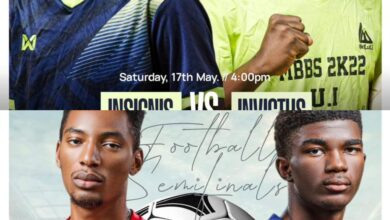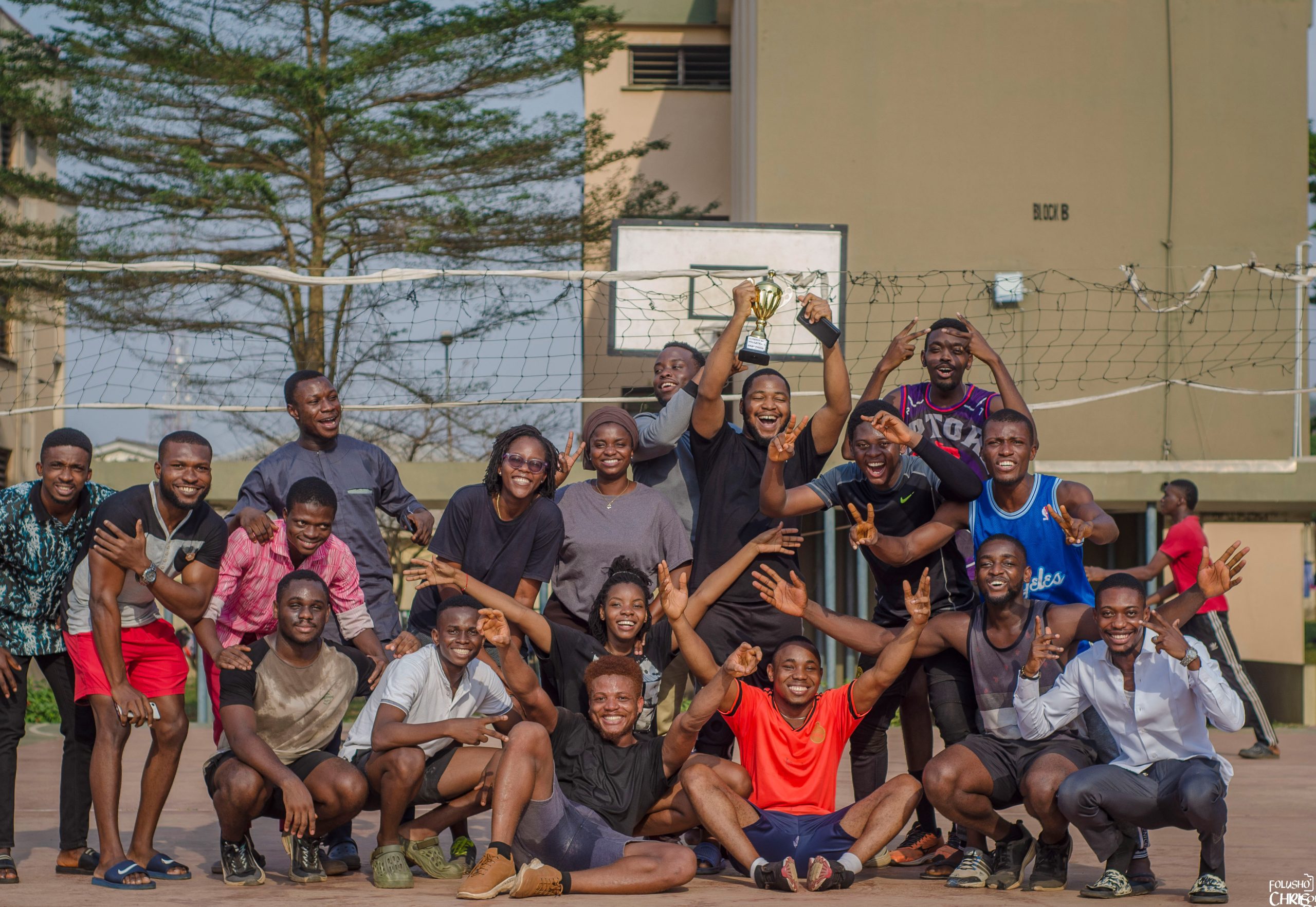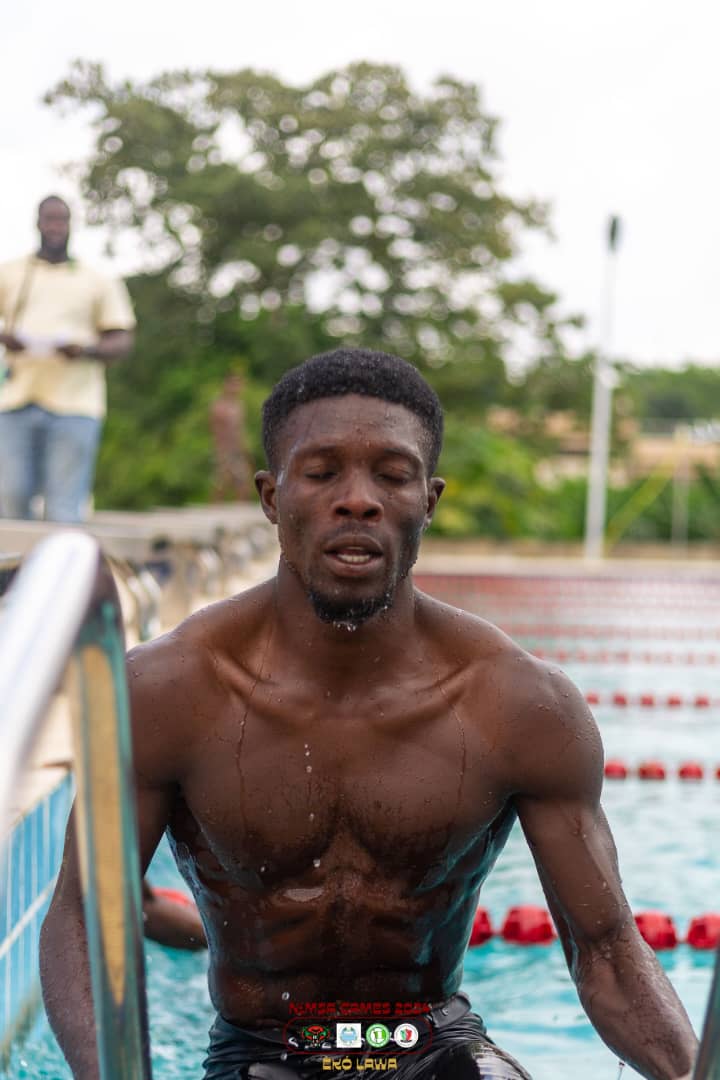
Exactly 300 days after lifting the SEALS Cup trophy in their second-ever campaign, MBBS successfully defended their trophy in the 7th edition of the SEALS Cup, cementing their status as the best department in UI football. It was also remarkable because the last time they lost a SEALS Cup match was on October 23, 2023, when they fell to Political Science in the semifinals of the SEALS Cup ‘23.
Just like the last edition, whoever watched the first half of the opening edition of this year’s edition must have thought, “They are not that good anymore.” In the opening game last year against Human Kinetics, MBBS had a shaky performance in the first half, even conceding after just 2 minutes of play. Although they equalised 6 minutes later, they still struggled to find the winning goal until Habeeb curled a beautiful free kick into the net in the last minute of the encounter. This year, they were losing 1-0 at half-time to Industrial and Production Engineering (IPE), the same team they defeated in the final match of the previous edition. Even after equalising via Sir Dave’s free kick, they conceded another goal just minutes later. And, although they drew level again, many felt that they could have had a better match. Regardless of how the first game went, the team went the full journey against all odds to triumph once again.
Group Stage
After the opening game against IPE, MBBS faced Biochemistry and Arts and Social Sciences Education (ASSE) in the other games of the group stage. They won both games, defeating Biochemistry by five goals to nil, and ASSE by three goals to one. For the first time since the team started participating in the SEALS Cup, they failed to earn all nine points. In 2023, MBBS faced Adult Education, Philosophy, and Mechanical Engineering. They won all games, even defeating the eventual winners of the competition, Philosophy, by 3 goals to nil. In the 2024 edition, they faced Human Kinetics, Urban and Regional Planning (URP), and Economics, defeating them all in the group stage. This time, they could only get 7 points because of the draw against IPE in the opening game. While the game against Biochemistry was a walk in the park, the scoreline against ASSE did not reveal the full story. ASSE played a very brilliant game. Their offside trap worked well against MBBS, and on several occasions, they dominated the midfield. Although ASSE failed to qualify for the knockout stages of the competition, many fans agreed that ASSE would have qualified if they were in another group. They were just unlucky to be in the same group as heavyweights, MBBS and IPE. Their defender, Busari Malik, will be one to watch in the next edition of the SEALS Cup [if he plays].
Resilience Amidst Challenges: “MBBS are Best Beaten When Unprovoked”
Sir Dave’s statement after the win against Political Science, “MBBS are best beaten when unprovoked”, was the summary of the knockout stages. In the Round of 16, MBBS faced the Department of Chemistry. The winner of the fixture was poised to face Political Science, as they had already won their RO16 fixture against Physiotherapy in a scintillating performance earlier that day. However, MBBS failed to impress spectators, among whom were Political Science players. By honest assessment, it was a truly underwhelming performance, but they managed to beat Chemistry by two goals to one. After the match, the odds turned against MBBS, and many fans now expected them to get blown away by Political Science. In fact, Political Science’s keeper, Olami, sent verbal jabs to the MBBS camp. What followed was assuredly one of the best performances we have ever seen of the MBBS team. In the first half, they put two quick goals past Political Science, the second of which was from an unfortunate blunder by Olami. Although Political Science scored a consolation goal late in the second half, it was not enough to avoid the defeat. With the knocking out of Political Science, MBBS assumed the status as strongest favourites for the trophy, many fans expected dominating performances in the remaining games of the competition, but that was not exactly the case.
Now confident, MBBS faced Petroleum Engineering in the semifinal. Very early into the game, they fell behind after a blunder by goalkeeper, Emerald. Karbon did well to equalize minutes later, but they still couldn’t find the goal that would have given them the edge against the Tech side. The game eventually went to penalties, in which MBBS triumphed with the shootout scoreline, 5-4. Unconventionally, Prestige was the one who stood between the sticks for MBBS during the penalty shootout. The highly-anticipated final came just 2 days later. In the first half of the encounter, MBBS were the better team. The defence and midfield remained solid, but there was a connection clearly missing in the attack. As a result of this, the Human Kinetics goalkeeper had little to do. The game turned on its head in the second half. This time, Human Kinetics had more possession of the ball, launching dangerous attacks and coming close to breaking the deadlock on a number of occasions. The MBBS defence survived, thanks to timely blocks and interceptions from the right centre-back, Promise. The game went into a prolonged penalty shootout. Each team played 12 penalty kicks, MBBS scoring 10 of theirs [with Ramoni and Razaq missing their kicks], while Emerald saved 3 of HKE’s kicks, replicating his heroic performance at the last SEALS Cup final.
These performances justified Sir Dave’s statement, as the team fell short of their usual standard in matches where a flawless performance was expected. Furthermore, the team was susceptible to late attacks, conceding goals in the final minutes of the games against IPE, ASSE, Chemistry and Political Science.
Breaking and Sustaining Records
Before this edition of the newly revised SEALS Cup, no defending champion had ever made it past the group stage of the following competition. In 2023, Geography failed to qualify for the knockout stages after earning just three points. In last year’s edition, Philosophy earned four points in the group stage, losing the opening match to Veterinary Medicine, defeating Elect Engineering and playing a 1-all draw against Statistics. Four points were not enough to make it past the group stage, as Veterinary Medicine and Statistics qualified with six and five points respectively. This year, MBBS chaged the status quo, earning seven points and qualifying to the knockout stages on top of Group A. They will now be the first defending champions to be placed in Group A for two consecutive editions. For readers who do not understand, defending champions are always placed in Group A. This record holds for only the newly-revised format because before 2023, the SEALS Cup was a competition for only departments in the Faculties of Science, Engineering, Arts, Law and Social Sciences. In the old format, Philosophy won the competition three times consecutively.
MBBS also helped UI football to sustain one record. Since the female football category was introduced in major tournaments last year, we have always had a department with both its male and female teams in the final but they have only been able to win one of the catergories. Last year, it was MBBS. The female UIMSA team faced ASSE in the final match, losing 3-2 on penalties after a goalless draw in normal time. The male team won their match, defeating IPE in the penalty shootout after a 1-all draw in normal time. The reverse was the case at the Super Cup, as the male UIMSA team lost to Political Science by four goals to one in the penalty shootout, after a 1-all draw in normal time. The MBBS female team defeated Statistics by 1 goal to nil, courtesy an effort from Captain Eseosa who missed this year’s SEALS Cup.
At the SEALS Cup this year, the department of Human Kinetics were poised to break the curse. Their female team won the female category of the tournament, defeating Philosophy by 2 goals to nil but the male team fell to MBBS in a heart-wrenching 10-9 defeat during the penalty shootout. As it stands, the next department with its male and female teams in the next major tournament in UI will have a curse to break.
Still No Natural Defender in the Starting Lineup
In the 2024 edition of the SEALS Cup, MBBS started the competition with a 4-man defence, of which Portian Okoye, a natural defender was a part of. This defensive setup failed to deal with attacks properly, prompting a reversal to the 3-man defence used in the SEALS Cup ‘23. With this change, Gerald and Istanbul who normally play in the midfield were converted to defenders to play alongside Thafa, another natural defender. Coach Liam repeated the same tactic in this year’s edition, adding Promise Adeji-Paul, who is also a midfielder, and sometimes, Emmanuel Abang who is a striker, to the defence. The starting lineup currently deploys 3 midfielders as defenders. The question now is, will it become the norm for the future MBBS coaches to convert midfielders to defenders, or will there be a point where natural defenders will have their time of day?
The “6+x” Years: An Advantage Or Not?
The most common argument you would hear against the MBBS team is that it is made of players who have spent many years in school and hence, have a wealth of experience with varsity football. For example, the most-senior members of the team, Liam, Karbon, Ramoni and Teslim have been in school since 2018. Also, players from the next set—Habeeb, Istanbul, Ola and Fuhad will not graduate until 2027. The public opinion is that it is unfair advantage and the root of UIMSA’s succeses.
However when we consider the fact there are other departments with players who have spent similar time periods in school, this ‘advantage’ disappears. For example, Veterinary Medicine, and more recently, Pharmacy spend six years also in the University. Also, departments with postgraduate students are allowed to recruit a certain percentage of their team from these set of students. This is how Pogba, a legend in UI football has represented Political Science for this long. The student doctors do not have this luxury, as there are no postgraduate students available to be part of the team. Finally, the demands of medical school restricts the availability of members of the team for some matches. On many occasions, key players miss first half, or even full games as a result of clinical postings and other academic activities. For the ones that barely make it sometimes, supporters see them running in in their wardcoats or scrubs. The lack of coherence between school activites at UCH and those at UI poses a significant challenge for the team, and in the end, “6+x years” may not be so significant after all.
Liam-ball Versus Obeya-ball
The revolution of UIMSA’s football team started with Coach Mark Obeya. Before Obeya, the team predominantly used a 4-man defence and only managed to secure a 2nd place finish at the Chief Medical Director’s (CMD) Cup. When Obeya came in, he introduced the 3-man defence, also incorporating preclinical students into a team that was comprised mostly of students in the clinical phase of their education. Only Sir Dave, Istanbul and Habeeb were the preclinical students who made it to the squad. Obeya brought in Gerald, Ade, Jide, Behemoth, Tofunmi, Seyi and Abang while scouting other first-year students like Faith Bassey and Azeez. Obeya’s philosophy of football was peculiar. He preferred a mixture of mass defence and mass attack, also known as hypertension football. With hypertension football, the team won the UCH Students’ Association (USA) Cup, came second at the Provost Cup and finished third at the SEALS Cup ‘23 and CMD Cup.
Liam replaced Obeya one year later as the head coach of the UIMSA football team. Although Liam’s style beared some semblance to Obeya’s initially, it eveolved into a more balanced style relying on wide wingers and a false 9. Liam started with a 4-man defence but reverted back to the 3-man defence style. Unlike Obeya, Liam maintained a team composed mainly of students in the clinical phase of their education. In the just concluded edition of the SEALS Cup, the only preclinical students in the team were Element, a third-year student, Prestige, a second-year student and Odegaard, a first-year student.
The Storybook Ending is Taking Legends Away
For the UIMSA male football team, induction has been the storybook ending that keeps taking legends away.The 4th Professional Examinations for medical students are scheduled to start in August. This means that induction into medical practice is not far away, and inevitably, some members of the team will leave the school. Captain Basit Saliyu left after the 2023 edition of the SEALS Cup, and it looked like Captain Ramoni was destined for the same fortune after the 2024 edition, but the MDCAN strike, which happened between December 2024 and April 2025, prolonged his stay in school. With no further delay in sight, this SEALS Cup appears to be his last outing for the student doctors.
Ramoni is not the only member of the team who is leaving. Coach Omotunde Olamide (Liam), Vice-captain Benjamin (Karbon) who won the Most Valuable Player (MVP) award for this year’s edition, and Teslim, a prominent member of the team, are all poised to leave. Another player leaving is Ayotunde Oni, who was deployed as a left centre-back in the 2023 edition. However, he chose not to play in last year’s and this year’s editions of the SEALS Cup. Their replacements are already available in players like Prestige, Jide and Tofunmi. However, it remains a question as to whether they will be able to adequately fill the large shoes left by these legends. Liam, Ramoni, Karbon and Teslim will be missed.
If they register for the next edition of the SEALS Cup, another campaign to defend their title awaits. Will they do it again for the third consecutive time, or will their streak be broken? Time will tell.



